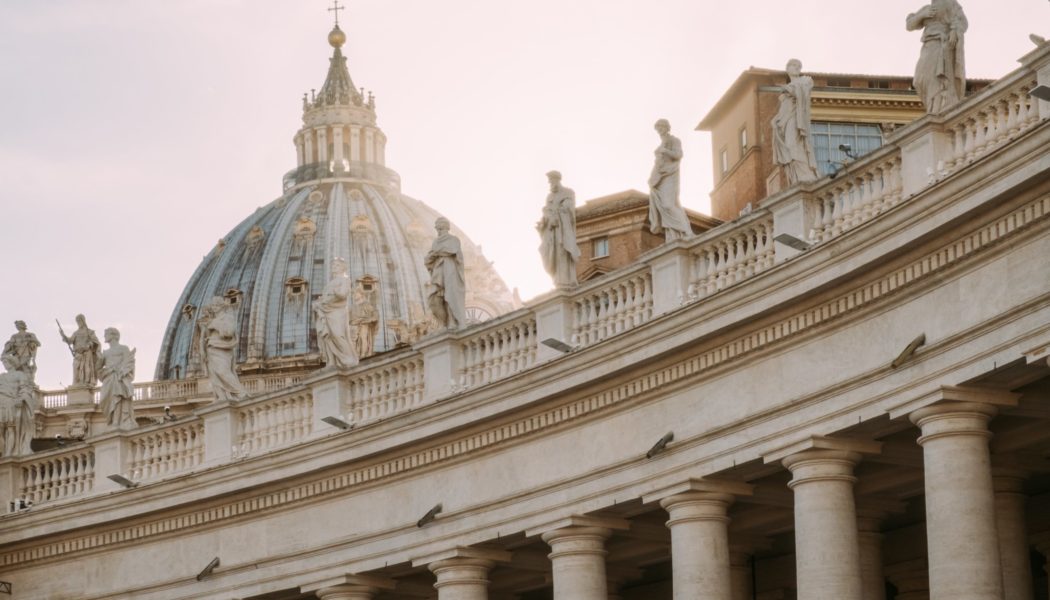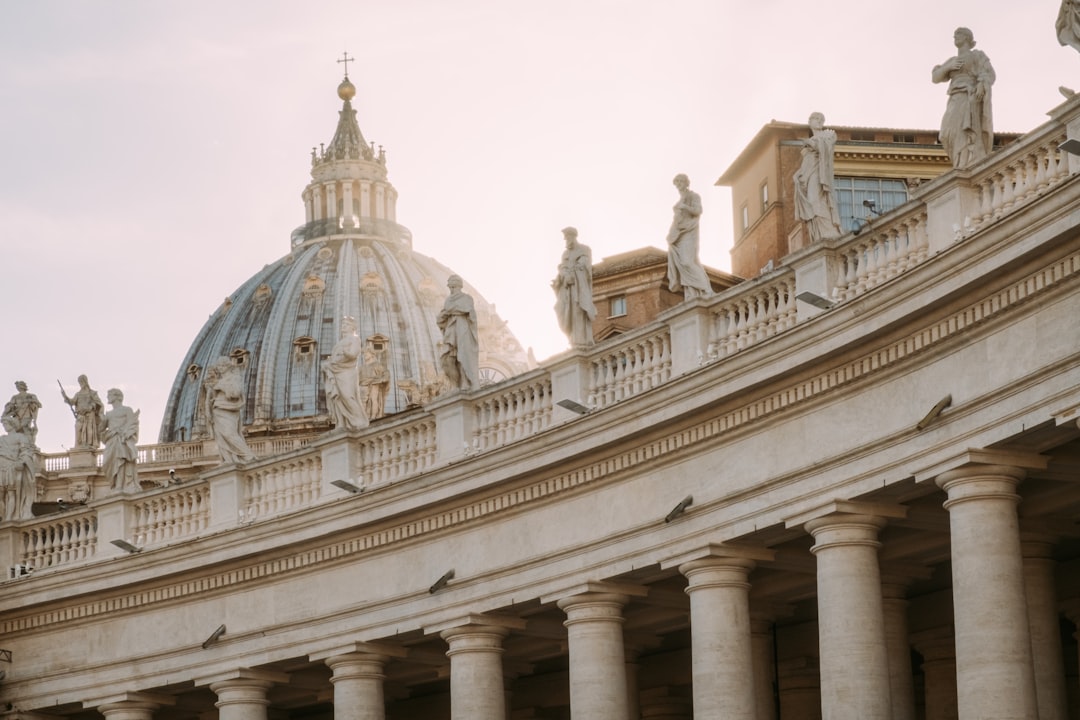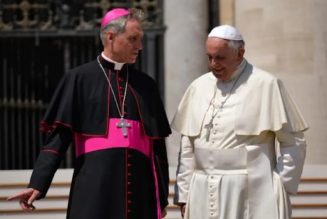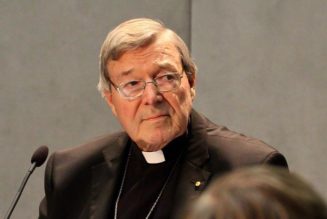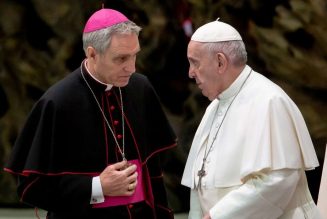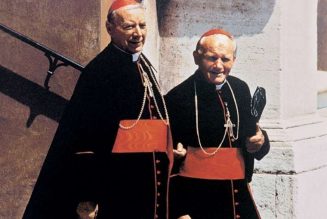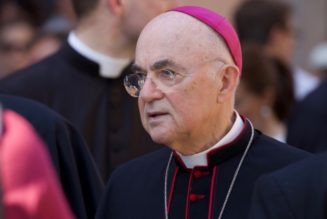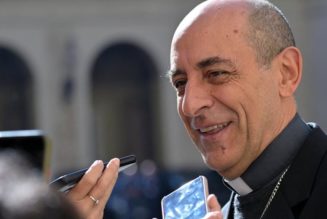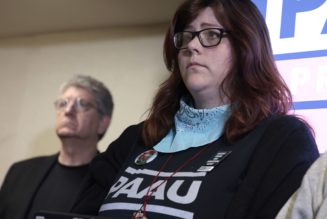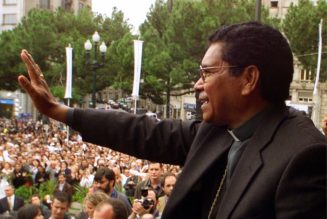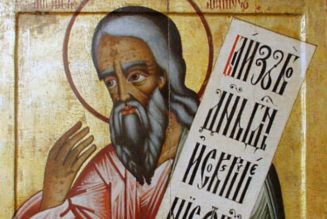The Vatican’s diplomatic office was shut out of the drafting process ahead of Pope Francis’ Wednesday apostolic exhortation Laudate deum, according to sources close to the process, despite several sections of the text which focused on international policy and policy-making.
One senior Vatican source told The Pillar that the freeze-out has left officials in the Vatican’s Secretariat of State discouraged, and could have long-term diplomatic effect for the Holy See.
—
Laudate deum’s release had an unusual run-up in the months prior to its publication.
The pope told a group of lawyers Aug. 21 that he was working on a “second part of Laudato Si’,” according to Catholic News Service, and soon after told Hungarian President Katalin Novák that he would publish the text Oct. 4.
While the text was initially billed as a papal encyclical, it was actually published this week as an apostolic exhortation, a papal text generally regarded to have less authoritative weight.
The exhortation urged that Catholics, and “all people of good will,” work together to address climate change.
“We must move beyond the mentality of appearing to be concerned but not having the courage needed to produce substantial changes,” the pope wrote.
“We know that at this pace in just a few years we will surpass the maximum recommended limit of 1.5° C and shortly thereafter even reach 3° C, with a high risk of arriving at a critical point. Even if we do not reach this point of no return, it is certain that the consequences would be disastrous and precipitous measures would have to be taken, at enormous cost and with grave and intolerable economic and social effects.”
Laudate deum also focused on an upcoming United Nations conference on climate change, COP28, urging that the conference “allow for a decisive acceleration of energy transition, with effective commitments subject to ongoing monitoring.”
But while the pope urged international cooperation and political solutions to climate change, his own global diplomats were reportedly not involved in the text’s development.
The Vatican Secretariat of State received the text for comment only shortly before it was finalized, sources said, leaving “not even a day” for the diplomatic office to weigh in on the text, or to compile suggestions from diplomats appointed to the Holy See.
That omission was a break from the established Vatican practice, in which all documents with a policy, political, or diplomatic element are provided to the Secretariat of State for lengthy review, so that the Vatican’s own subject-area experts can weigh in on possible implications of a text, and so that global diplomats can be invited to give comments or suggestions.
That process is generally understood to help build consensus for policy goals proffered by the Vatican, in order to make their achievement more likely.
Sources close to the Secretariat of State say that the dicastery had been the point of contact on the text for U.S. Presidential Envoy John Kerry, who contacted the Vatican’s diplomatic office after the pope first announced his plan to release a document on climate change.
One source said the Secretariat of State received “very serious suggestions” from Kerry, but was not given time to transmit them to the document’s drafting team, or to convey them to the pope.
“They were working with Kerry at a very high diplomatic level. So when they were working on that, they got almost no time with a draft — just hours — before Francis announced [internally] it was finished. And that was that,” a senior source told The Pillar.
“It’s very embarrassing to be working with a serious global figure, and then this happens.”
__
Kerry’s office declined to comment on questions from The Pillar about the climate envoy’s involvement in the document, pointing only to an Oct. 5 tweet from Kerry which praised the text.
But Vatican diplomats told The Pillar that if the Secretariat of State is perceived to have diminishing influence on Vatican affairs, it could make ongoing diplomacy — even on climate change — more difficult.
“In terms of protocol, this is very embarrassing for the Vatican, and it makes even harder the hard work of a lot of smart people,” one Vatican source told The Pillar.
—
It is not clear who drafted Laudate deum, with one source saying he understood that the text was developed with a very small circle — “just the pope and his guys, really.”
Most Vatican speculation has centered on a collaborative effort between Cardinal Victor Fernandez, prefect of the Dicastery for the Doctrine of the Faith, and the Argentine theologian Emilce Cuda, secretary of the Pontifical Commission for Latin America.
The text has been generally well-received by climate activists, but has proven controversial in the United States, because of its claim that “emissions per individual in the United States are about two times greater than those of individuals living in China, and about seven times greater than the average of the poorest countries.”
While the document’s footnotes said that data came from a 2022 United Nations Report, the report itself showed that U.S. per capita emissions are less than 1.5 times that of China — and that China’s per capita emissions levels — which some thought were framed as laudatory — are significantly higher than the global average.
Comments 24
Services Marketplace – Listings, Bookings & Reviews
